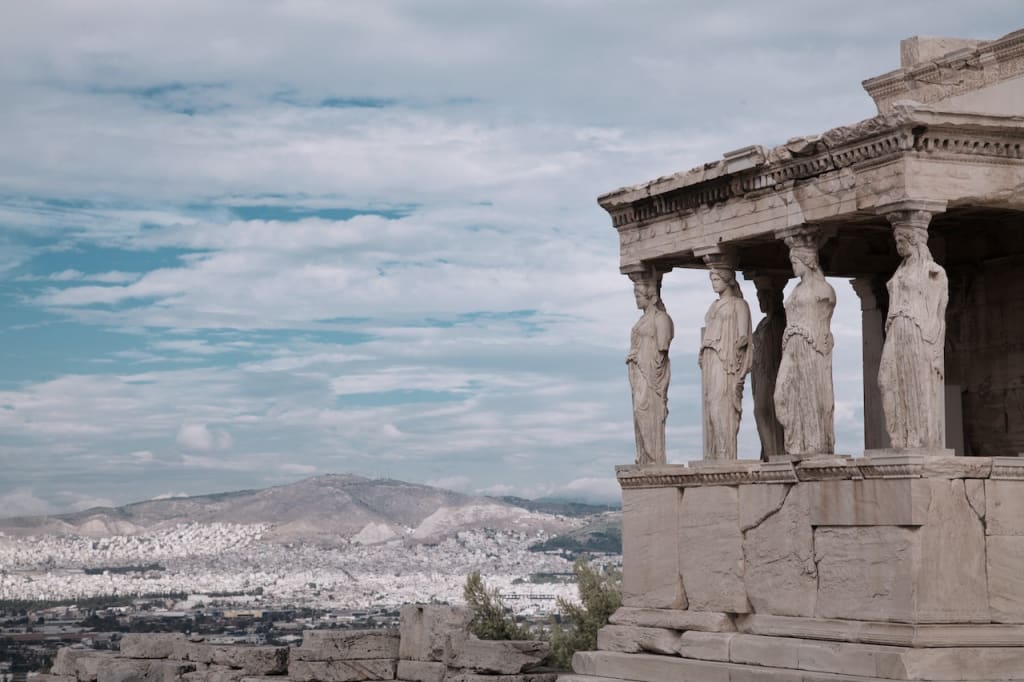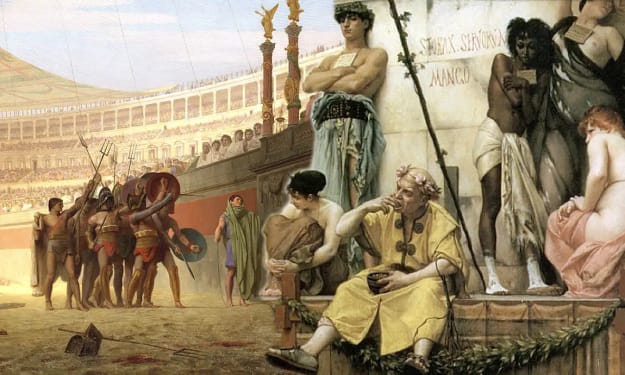The Myth of Persephone
Seasons' Dance and a Delicate Compromise

Every year, before the ancient Greeks sowed their seeds of grain, they celebrated Demeter, the goddess of agriculture. On Earth, every morsel of food brought sweet sustenance, while in the land of the dead, it ensured an eternal stay. Demeter nurtured the fields of Earth with her beloved daughter, Persephone, who inherited her mother's passion and blossomed into a radiant young woman.
Unbeknownst to them, a shadowy figure observed from below. One day, while Persephone was frolicking in a meadow with a freshwater nymph named Cyane, they noticed a trembling narcissus flower. Suddenly, the earth split open, and a terrifying figure emerged. It was Hades, the god of the dead and the underworld. He forcefully separated Persephone from Cyane, dragging her into his inky chariot, and plunged back through the earth. Cyane wept so intensely that she dissolved, merging with the river.
When Demeter arrived at the scene of the abduction, the crater had closed, and both Cyane and Persephone had vanished. Overwhelmed with grief, Demeter sought assistance on Mount Olympus. Many gods had witnessed the incident and were aware of the deal that facilitated it. Persephone's father, Zeus, had granted Hades her hand in marriage without her consent or Demeter's knowledge. However, when Demeter implored the other gods for help, they remained silent.
Determined, Demeter embarked on a solitary quest. Consumed by sorrow and desperation, she neglected her customary duties, causing crops to wither and a devastating famine to afflict the Earth. The gods grew concerned, realizing that without humans, they would lose worshippers and offerings. Zeus commanded Demeter to cease her crusade and resume her responsibilities. Yet, she refused. Meanwhile, in the depths below, across the frigid river Styx and within the halls of the underworld, Persephone fought her own battle. Hades expected her to serve as his wife and queen, but she resisted his advances and refused to eat. As she yearned for her mother's presence, the laughter of her friends, and the warmth of the sun, Persephone grew colder, lonelier, and hungered for grains, crisp vegetables, and fresh fruit.
Roaming through the spectral gardens, she pondered the pomegranates that hung heavily from their branches. Meanwhile, Demeter persisted in her search, turning to the all-seeing sun god, Helios, whose rays had long nurtured her crops. On that fateful day, as Helios guided his golden chariot across the sky, he witnessed the events and understood the implications of the deal. Out of respect and sympathy for Demeter, Helios revealed to her Hades' demands, Zeus' betrayal, and Persephone's abduction.
Furious and heartbroken, Demeter rushed to Mount Olympus, confronting Zeus and demanding the return of their daughter. But Zeus refused. Due to Persephone's insatiable hunger, she had consumed a few seeds from the pomegranate that grew in the underworld. Although a small quantity, it was enough to bind her to Hades forever. Demeter refused to accept this fate. She vowed that if she couldn't be reunited with Persephone, the fields would forever remain infertile, and the boundary between Earth and the underworld would dissolve.
A pact was eventually forged. For two-thirds of each year, Persephone would reside in the land of the living, reunited with her mother. However, for the remaining portion, she would return to the world of the dead. Each time Persephone ascended to Earth, she and her mother rejoiced, showering the fields with rain and nurturing them with sunshine. For mortals, Persephone's arrival heralded the arrival of spring. Unfortunately, her descent always came too soon. As she returned to Hades, Demeter mourned, and the earth turned cold, dark, and unyielding, ushering in the winter months. Aware that Demeter could not be swayed from her grief, humans stored their crops, stoked their fires, and eagerly awaited Persephone's safe return. Thus, her transition marked the gradual turning of the seasons and the delicate compromise between life and death.
Henrik Leandro
About the Creator
Henrik Leandro Laukholm Solli
Free thinker, traveler and humanist <3






Comments
There are no comments for this story
Be the first to respond and start the conversation.